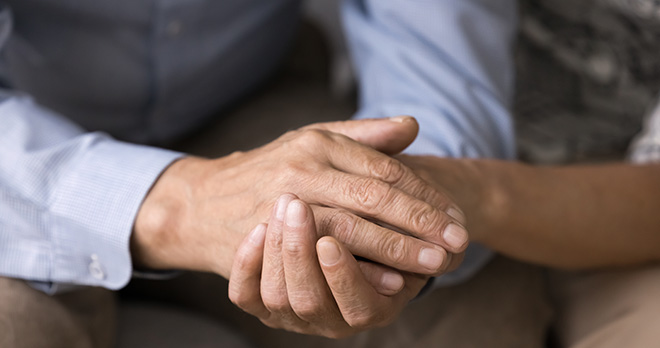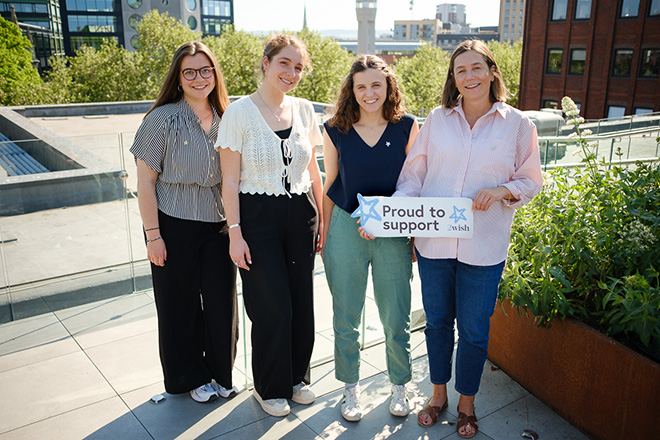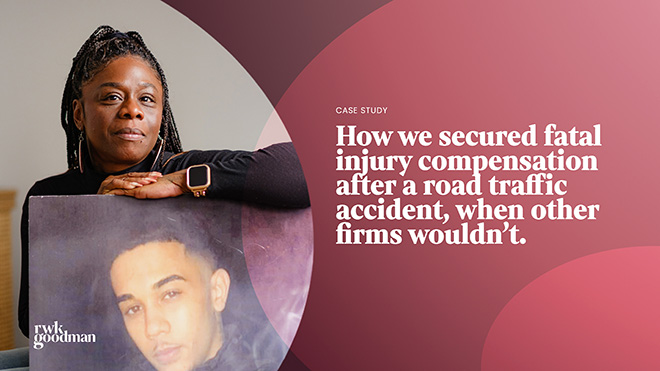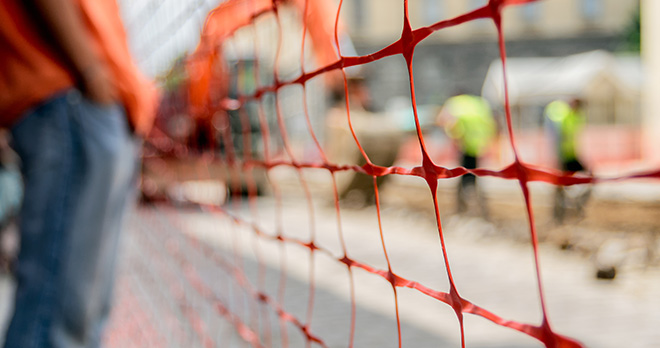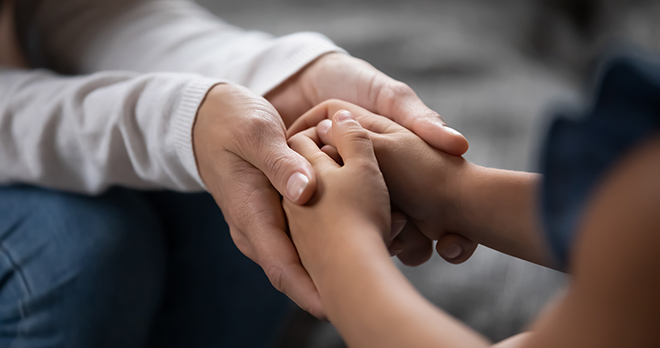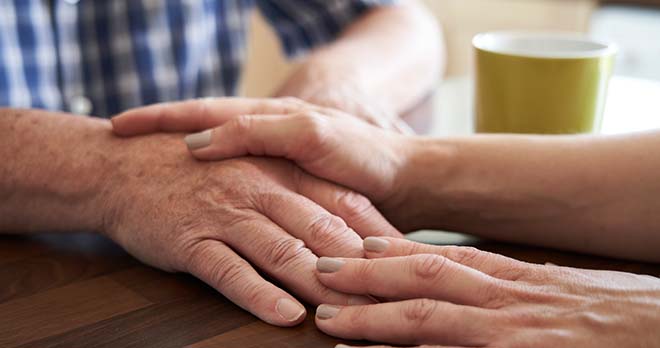What support is available after a sudden bereavement? – Spotlight on 2Wish.
In this episode of our podcast we are joined by Kirstie Edwards, Bereavement Services Manager for England arm of 2Wish, James Hall is a Bristol-based counsellor from .Ripples Wellbeing and our own Ali Batchelor (referred to as Ali Cloak in the podcast recording), Partner in our Inquests team.
In this episode we discuss sudden bereavement, 2Wish, the support 2Wish offer alongside providers like Ripples Wellbeing, and what kind of support people might find helpful after a sudden death.
First of all let's talk about 2wish. What do you do?
Kirstie Edwards: So 2wish is a Welsh founded charity. We started 12 years ago following the awful circumstances of our CEO and Founder, Rhian Mannings. It was a night like any other. Rhi was at home with her three children and her husband, the two eldest had had their baths and were sat in front of the TV having some warm milk before bed and George, who had just turned one, five days earlier, was learning to crawl, pottering around on the floor. While playing on the floor, George fell to one side and Rhi, thinking nothing of it, babies of that age learning to crawl. She casually started walking towards him and as she did, he went into a seizure and she called for her husband Paul, and together they took George to the local hospital where sadly he died several hours later.
Rhi and Paul dealt with their griefs in very different ways but he does talk about how amazing the professionals were when trying to keep George alive. But what happened afterwards is that no support was available. Nothing was offered to Rhi, to her other children, Holly and Isaac, or to Paul. As a consequence of that, five days after George’s death, Paul left the family home and it wasn’t until police knocked on Rhi’s door a couple of hours later that she found out her husband had took his own life, consumed by the grief of losing their youngest child.
So, just the most awful of circumstances and all points in this following George’s death and then following Paul’s no support was offered and so 2wish was really created out of that gap of provision really.
It started around Rhi’s kitchen table. They, the local community, really rallied round and they raised a significant amount of money that they took to the hospital where George had died and offered it up for a bereavement room to be created so that anybody who lost anybody in the hospital would have somewhere safe, quiet, peaceful to go and a space that wasn’t available to Rhi and her family following George’s death and that’s an arm of our charity that we continue to do today. So we recreate and refurbish bereavement rooms across Wales and England so that families and friends have those spaces in hospitals following, you know, the most awful moments of their lives.
But what’s important, I guess, to the 2wish story is that we didn’t stop there. She then went and spoke with teams at the University of Wales Hospital in Cardiff and asked them what was the statutory offer of support following at that point a paediatric sudden and unexpected death and they were very open and honest to her and said, you know, that there isn’t anything statutory really, that often they will do their best to share numbers, share leaflets with family members. But ultimately, you know, once that family has left through the A&E doors that they came in a couple of hours earlier, the medical staff often don’t see them again.
So in short, if or what support was accessed and also support services so sadly because of funding and other circumstances come and go so often that those leaflets and numbers that are handed out might not still be available to the family. So, with this group of medical professionals recreated the immediate support pathway, which is our bread and butter, I suppose it’s what our kind of passion is to ensure that people are offered and can access support immediately following the death of their child and since our origins, we’ve extended the age up, so we now support anybody that’s been affected by the sudden or unexpected death of someone under the age of 25. So, the person who died has to have died before their 26th birthday, and the circumstances have to be unknown 24 hours before it occurred. So that, you know, that’s such umbrella term that includes homicide, suicide, road traffic collisions and also medical if there was life limiting conditions, where the child has died premature to what’s expected, that would all fall under our remit and that immediate support, the referral can come in any way, it can come ideally through the person in the hospital supporting that family at that time. But if that’s not available, you can self-referral, via the police, via friends family and once the referral has been received by us, we will contact that individual within 48 hours and it’s in that initial phone call that we get a home visit in as soon as possible so that we can launch into that immediate support in the very early days following the death of their loved one.
How do people get referred and how do they make contact? What kind of signposting is there?
Kirstie: So there is a referral form on our website, so people can just go to www.2wish.org.uk and complete that form on there, that gets sent straight into myself and the team and that launches, you know, the 40 hour timescale.
But also as I mentioned it, anybody, so doctors, GP surgeries, the hospital, police a neighbour, anybody can access that and if they don’t feel confident answering all the questions on the online form to just give us a call up at our head office and we can talk through that. You know, as long as we get those kind of headlines of information, the name, the contact information, everything else we can go through with the referred individual and get all that further detail. But I guess that’s just to encourage people that this service is free, it’s confidential, it’s available to anybody who’s been affected that has either lived or died in Wales and the bordering counties currently that’s part of our expansion and working really closely with professionals, I suppose that could come into line with this.
So, we offer a couple of different training options that we go in and or can do online, which are both free and that gives opportunity for us to share with professionals in hospitals, education etc. about 2wish and you know why the support is here where it’s come from the Rhi’s story but also how people can access it and also I think death, dying and bereavement generally is a conversation that us as a culture really struggle to talk about and especially when we talk about children dying. So, to be able to give some confidence to the general public, to professionals that it’s okay to talk about, it’s okay to get that referral in because as soon as we can access that, that that family, that friendship group, that peer group and the, you know, the better their journey, I suppose, following the bereavement is going to be.
So, obviously counselling would be a large part of the support that you offer I imagine. So what is the link between 2wish and counsellors such as James?
Kirstie: So from 2wish, we have the immediate support that goes on for as long as there’s ever a need or risk present. There’s no time scale on that. But when people are ready we start talking about our ongoing support pathways and that’s really a pick and mix, a menu of options that people can access depending on their needs and interests and one of those things they can access is counselling.
So at 2wish we have a, we’re really lucky that we have over 150 counsellors on our books, which means that there’s never a waiting list, we can link people up depending on kind of gender or location. Those things that might be important to the person accessing the counselling and we’re so lucky that we’ve got Ripple’s on board as as one of our main hubs really. So we’re able to have counsellors from James and the team.
James Hall: So from our perspective, essentially what normally happens is the referral comes through to us or to Heidi my business partner and we will kind of assess and review which might be, who might be the most appropriate counsellor for this person. They may have a specific requirement and may be a location as mentioned previously, or they may be looking for a male or a female or whatever.
Now initially, we are asked to provide eight sessions, so 2wish offer eight sessions. But there have been circumstances where clients may be a bit more complex and needs require perhaps a couple more and 2wish to date have been very forthcoming with that and sometimes able to offer a bit more. But of course it’s down to funding and this is why it’s so important that if people can support this charity, the work that they do is absolutely incredible and I hope that the people listening to this don’t ever have to use this charity. But just remember that one day you might and if you can dig deep and support this charity, then I really, really do encourage you to do so.
What are the benefits of getting that support early in the process of coming to terms with what has happened?
James: Yeah, absolutely. So it is very much a process and that does sound very clinical. But essentially the longer we leave it, the more complex it becomes. Now there’s various stages of grief, as I’m sure most people know, but just for those that don’t, I will kind of go through them and grief and change are very similar.
They follow a curve where essentially the beginning stage of grief is that shock. It’s the anger. It’s denial. It’s head in the sand. This can’t be happening to me. There’s no way this has happened and then there’s that kind of that stage where you’re sort of bargaining, if you like, that kind of telling your story and it’s telling your story, which helps you kind of come through that transition. So the nosedive of kind of feeling despair and really angry and wanting to blame everybody, including yourself sometimes.
The bargaining stage, which essentially is what the counselling helps facilitate, is you to tell your story, the client to be able to open up, to feel compassion, to feel like they’re being held in a place that’s non-judgmental, that’s caring and full of heart and we have people we have four qualified counsellors and we also have some students which don’t work with these clients because they are quite complex, if I’m honest. So we leave this to the pros. I’m one of those. I’m very fortunate to have three other amazing women that that support us and 2wish too. But essentially, once that bargaining kind of happens through the counselling process, you eventually start to come to that upward trajectory, which is when you start to accept things and eight sessions to be able to accept a grief or loss, if I’m honest, is probably unrealistic because it takes years. Maybe never, actually, if I’m honest, grief is something that I don’t think we ever, ever get over. I think we learn to adapt and evolve and find workarounds. But counselling can help to provide tools and in an area which is non-judgmental, which doesn’t have opinions, which can just allow the client to explore freely, openly, without judgement and to feel really like they’re having that kind of metaphorical hug.
We work remotely. We work in-person too if location suits and it’s just, it’s life changing. I’ve had counselling myself, being honest, my journey wasn’t always in counselling. I’m actually an electrician, which is madness. But there we go. Mental health sent me on my own journey but that’s a whole different story. But bereavement and loss are very similar to change.
It takes time to adjust and early intervention is absolutely critical because the longer we leave it, the more complex it becomes. So if we can intervene quite early on, clients feel held. They feel like there’s hope, they feel like they’re not alone and I think that’s really important. So yeah.
Ali Batchelor: James, is there such a thing as too early? Are there ever cases where it’s, you know, you actually say, let’s just hold on a second there’s a bit too much going on here?
James: Absolutely. Yeah I think with, especially when you’re talking about losing a child or somebody under the age of 25, that’s a child to me anyway, to be honest. But yes, absolutely. If they were, if something were to happen on the Saturday, then you wouldn’t want to be starting work the next week. I mean, that would be- they need time, I would say a few months to be able to adjust to this, to let the news sort of land because there’s, it’s quite, you have some natural kind of self healing to do anyway.
So some of the things that we would have done as children, we would have been taught as parents or guardians our upbringing would have informed us how to kind of deal with catastrophic events. They may not have been as catastrophic as quite this one, as something like this. So yes, I definitely agree that there is, I think there could be too early. So I would say anything within a month of a sudden death is probably too soon. Six weeks onwards, maybe three months would probably be a sensible place to start in my opinion.
Ali: But, in the meantime, useful for them to at least know there is help available and maybe for some sort of lighter touch support to be happening so they’re not left feeling helpless in that sort of immediate aftermath.
James: Absolutely, and I know that 2wish offer lots of different other things such as like coffee mornings and things like that where people can go along to these events and it’s shared lived experiences. So group therapy is not for everybody and this isn’t really group therapy, but it kind of is in a sort of strange way.
But it is useful to find commonality to seek out people that have been through this experience because it can feel very lonely, it can feel very dark and just hearing and seeing others around you that can give empathy. They can share lived experience. It provides us with hope. It gives us like a second family because you think I’ve lost somebody that’s crucial to me, that’s absolutely critical in my life and all of a sudden as a result of this very negative experience, 2wish as a perfect example, it’s turned something very negative into something quite amazing and it’s the same with these coffee mornings and these kind of get togethers where you can seek out and find friends for life, and it can provide a new opportunity or some growth in you and your family and your friends as a result of something very dark and catastrophic.
Ali: Can I ask, I’m aware through my role that sometimes people are quite resistant to the idea of seeking help or speaking to anyone, either because it’s how they’ve been raised or they just think, look, no one can help me with this, you know, I’ve just got to struggle on.
What tips do you have or sort of how do you maybe try to get people to take that first step if it maybe doesn't appeal to them instinctively?
James: Yeah, absolutely. I think there’s a lot of stigma associated with with counselling and therapy. I think everybody seems to think we all sit there in white coats with a clipboard and on my chaise lounge and analyse people. It’s really not like that anymore. People, dare I say this word, but people are very normal. I’m a rugby player. I was an electrician for 20 years. I’m now a counsellor. I’m a clinical supervisor too. But I’m a normal person. I’m a dad. I’ve got three children. I’ve got a wife. I’ve got a family. I play rugby still, I cycle. I do all the things that everybody else does, but I’ve got some training in something at being a great listener, I’ve got a big heart, I’m full of compassion and I’m here to try and encourage people to open up because it is scary, it is hard and I relate to it. It resonates with me massively.
I remember in the darkest hours feeling despair and hiding. Literally hiding under my bed. Not wanting to come out. Not wanting to see the world and face anybody. But something- it’s got to be right for you.
What I would say is with 2wish, often with counselling and other services, we often find that clients often have to fund things themselves and that can be an obstacle, if I’m honest. With 2wish that obstacle is removed. The cost to the clients or to the individuals is zero. So actually, if we’re honest about this, there’s no risk, there is no risk to it costing you anything. Is it going to be hard work? Yes. Is it going to make you upset and are you going to get lots of opportunity? Yes. But if sitting there and doing nothing and kind of being upset, you’re still going to be sad, you’re still going to be upset, but the difference is you’re going to be alone. You’re not going to have a professional that’s listening, that’s helping you walk the walk with you and I kind of use the analogy of if we’re in a boxing ring or something like that, I’m in your corner with you. I’m geeing you up. I’m helping you on this fight. This fight to kind of get better, to improve, to overcome. This is what our role as counsellors is, is to be in that corner with these people.
It’s a long-winded answer, I appreciate. But in summary, there’s lots of stigma and generationally, I think things are getting better. I think nowadays the younger generation are more receptive to talking about their mental health, which I think is a great thing. I think Covid played a huge part in opening everybody’s eyes and that was a horrendous event that happened there and it’s still ongoing, let’s be honest, and the effects of that will be going on for years to come. But again, a whole different can of worms probably there.
Ali: Is something like the coffee mornings that 2wish hold is that like a often a sort of better a gateway activity if you like and maybe for people who think, “well, counselling sounds a bit full on, that’s not for me”. But they maybe might be coaxed along to a coffee morning because it sounds a little bit less scary?
James: Absolutely. So Jane, who’s one of our counsellors, she facilitates the mornings in Gloucester and she lives local to that area and it it’s great. She is a trained counsellor. She’s she’s very mumsy. She is such a lovely bubbly person and you almost feel like you have that instant connection and she’s not really trying too hard. That’s the thing, she’s just being her and really normalising counsellors because I promise we are normal people.
We’re not all as scary as we look and hopefully I don’t look too scary, but to somebody it can be daunting sat in a room or even on screen. “You’re a big rugby player. I don’t want to talk to you”. Okay, I am, I am a big rugby player, but I’ve got a big heart. The bigger I am, the bigger my heart, right, and I’m full of compassion and I’ve got my own journey and like I said, I really, I’m so passionate about this and that’s why I do this for a living and it’s just. Yeah, but the coffee morning is a great icebreaker if you like. It’s “I’m not sure about this”, but why not go along and meet somebody or why not say, “can I have a 20 minute intro session?” Because we facilitate that, as a business, at Ripples we would do this.
So if somebody is to reach out to us and said we’ve got this client that’s really not sure about counselling and if it’s for them then absolutely no worries. I said, okay, how about a 10 minute or 20 minute Zoom call where we just have a chat, just see see how it is and just remove some of that kind of, I don’t know, fear and oh, am I going to get any worse? Is it going to make me worse? I don’t believe counselling can make you worse. If we’re making people feel worse, it might temporarily. But it’s part of that process that I mentioned before. So does that make sense?
Ali, how do you see that impacts upon people and kind of what steps do you take to perhaps help people get through the challenges of them?
Ali: So I’ll start by saying it’s difficult because there are these concurrent processes that are probably competing in some ways and where there is an inquest or a claim or a complaints process or an investigation, an internal investigation or something like that.
One of the things that lots of people comment on is just how disconcerting it can be to just sort of every time they look in their inbox, they’ll maybe be another document that’s been sent to them from the court that’s something that’s just new information or something they didn’t know, or perhaps a postmortem or something like that that can just instantly send them completely reeling when they may have been having a few hours where they felt quite composed. And so I think all of these processes have the potential to sort of derail in that way and I suppose in from my side of things, I just try to be really aware of that and try to be really realistic with people at the start about what the processes do involve so they can make a decision as to whether- the extent to which they want to involve themselves because there is a degree of choice in that and, you know, looking into a claim for some people will be the last thing they want to do because they just don’t have the appetite to find out more.
They don’t have the headspace. They just don’t feel they can cope. They may just not, you know, their view may be look, it honestly doesn’t change anything. They’ve died. How it happened, you know, isn’t going to get me any further along.
And then other families take the very opposite approach, and I think they actually put all their focus and energy into that investigation or that claim as a way of processing it, trying to understand it and people also often talk about they sort of want to do right by the person who died and almost take on that battle on their behalf. Which is admirable but can come with its own stresses and and challenges, as you can probably imagine, because that process is then carrying a lot and sometimes the expectations can be yeah, far beyond what that process can really achieve for that family.
And James and Kirsty, do you see that as well in the things that you do with people who've experienced an unexpected death of a child that they may be going through an inquest or kind of that kind of legal process? Do they have those kind of impacts on their grief process?
James: Yeah, so in my experience inquests often cause more trauma than the actual event itself. It’s, what tends to happen is people, by the time an inquest normally would come out would be probably a year or several months definitely afterwards and actually that’s about, it’s stirring everything back up again and it’s that in itself can be very traumatic.
So somebody may be a bit more content or at peace with where they’re at in their journey and then the inquest comes in and all of a sudden it stirs all that back up and often in my experience, some of the clients that I’m working with currently actually with 2wish there’s quite a lot of inaccuracies with some of these reports that come through and it’s really disconcerting actually and there’s three different versions of the same event and that, I mean that is traumatizing clients really is quite scary actually what happens.
But also because it’s the law, and no offence to the law, I work with lawyers a lot and there’s a lot of jargon, there’s a lot of legal speech and there is some counselling to a certain degree. But but I think we almost need as counsellors, maybe we need a crash course in legal jargon because actually maybe that might be useful for us to be able to kind of explain what some things mean and whilst it’s not our role to kind of go into an inquest per se, just being that supportive arm I think could be useful and and I think yeah, less jargon in counselling and and the law would be very helpful.
Ali: I’d say, obviously defending the lawyers here, I would say that’s where it’s probably yeah, if you are able to have representation through an inquest, that’s the advantage of having them because they can translate the legalese and that jargon, and they can hopefully explain everything to you in a way that it becomes more manageable and we’d also act as the basically the point of contact with the courts.
So I will always ask my clients how they want to receive the information. Do they sort of want me to call ahead and say, “look, quite a lot of documents have come in, I’m going to send these to you? This is what it’s going to include…” and sort of give them notice. Or do they want to receive everything the minute it comes in? And people have really different preferences on that.
But just asking them actually what works best for them and just some of that practical yeah, practical side of things I think can make a big difference and yeah, key anniversaries and dates as well are always something we’re really mindful of. So James just touched on how long it can take for some of these processes to go through and you sometimes have a hearing listed that’s, you know, the week of the anniversary of what happened and just being really mindful of all of that so you can, you know, ask the court to move a hearing date or just to be really sensitive when you’re getting in touch with the clients about something that it isn’t one of those, you know, one of those particularly difficult times.
James, do you find inquests helpful to the grief process? You know, the trauma of the process aside, once they get to the end of it, do you find it's actually more more beneficial in that way sometimes?
James: So, I’ve not had one come to that conclusion yet. So I’m unable to comment really, but I would imagine having some answers would definitely be helpful. It’s important that we are able to put some kind of closure on things, having things open, such as inquests and stuff like that. It just leaves it all open, doesn’t it and having that closure, then perhaps somebody is able to grieve truly and they’ve got an answer because what it does is it it’s not ambiguous any more.
So some of the blame, some of the self-blame, some of the making things up and inventing things because that does happen when we’re tangled up in grief. That’s explained and it’s no categorically this is not your fault. This is a result of X, Y or Z and that definitely will help the grieving process because, you know, and you have in black and white, that is not, particularly if you’re blaming yourself because there’s many people that do blame themselves when they lose a child. As an example, I should have done more. I could have done more. All that stuff; did I do CPR correctly? All that and then when the inquest says this was not a contributory factor or any of that stuff that gives you peace and definitely a sense of closure. Definitely.
For everyone: what's your one practical tip that you would give to someone who has lost someone?
Ali: I would say just talk to them. Don’t shy away from the really awful thing that’s happened. I think that’s often what we instinctively want to do. We maybe think we’re going to upset someone if we talk about it and I think actually it’s the the opposite. The truth is they’re thinking about it anyway, and knowing that they can talk to you about it is far more like far more important.
So I think, yeah, don’t be afraid to say that person’s name. Ask them about how they are that day and yeah, just sort of don’t shy away from talking about it. Even if you, you know, even if you’re not an expert and you, you know, you don’t think you have all the answers. I think just being there is the main thing.
James: So my tip would be yeah, following on from that so disarm the truth definitely. Yeah. So say what you see, a bit like Catchphrase. “I noticed that you’re you’re struggling. Are you, what’s going on for you? I’ve noticed you’re not quite yourself lately.”
So to let them in, let them tell you what’s going on for them and also just remember you’re not there to fix you and remember your level of responsibility. What is your role? Are you their, counsellor? Are you their friend? Are you their family and depending on what the answer to that is will depend on the level of support you can give. So actually know your limits.
Don’t be a rescuer. But we all want to. We all want to fix people. That’s what we want to do. It’s our human instinct to make people feel better. I can tell you now whether you’re qualified to the hilt, you’re not going to make somebody feel better instantly in that moment. You can’t rescue somebody that’s going through pain and trauma of grief. So just as you said before, just be there, be there and give space and time and know your limits. Don’t rescue.
Kirstie: Well, I guess I should say put referral into 2wish, If you feel like you need it. But I think also look at everybody in the room. I think quite often, you know, there are key players in the grief and the bereavement that support people get asked like I’m just thinking, you know, stereotypically moms all get asked “how are you?” Like, “how are you doing?” and the dads get left behind. It’s like, “how’s your wife? How’s the family?”
So I think as somebody coming in and offering support is to look at everybody in that space and is everybody being offered the same offer of support? Is everybody having the opportunity to talk? Is everybody having the space that they need and I think that’s it’s so important that some, you know, children may feel siblings who have lost a sibling may may feel that they’re not able to to express what they need to because they now need to look after parents, husband and wife feel like they need to look after each other so they may not be expressing their true feelings on the matter. So I think, yeah, providing that space for everybody to have the opportunity is really important.
Ali: Kirsty, you were just saying about sort of looking at, you know, other people involved and not necessarily just going to the the sort of most obvious if you like. Is it right that 2wish also offer services? It’s not only to sort of immediate family members. It’s actually much more broad than that.
Kirsty: Yes, absolutely. So we offer support to anybody affected and as you said, the obvious being friends, family, but also professionals and witnesses.
So any professional from any line of work who has been affected by the sudden, unexpected death of a child or young person in their line of work or in their personal life can access support and it’s really important for me to note that although our focus is on immediate support, there is no timeline on when the death could have occurred when a referral comes in. So ideally the death was yesterday or today.
But also the death could have been five, 10, 15, 20 years ago and quite often professionals when it is, you know, their day in, day out, they work in the sector where they sadly are seeing lots of types of death. It is sometimes it’s, you know, the one that breaks the camel’s back. It’s the fifth or sixth death that they’ve had to deal with and our support looks slightly different for professionals.
It’s really important to note that the same as friends and family, it’s all completely free. It’s completely confidential. Your employer doesn’t need to know you’ve accessed support from us if you don’t wish for us to share that information and as a professional, you can access our counselling, our complimentary therapy.
We have quarterly coffee mornings for professionals and so specifically for them to come together and meet with others who work in these sectors where it’s affected. We also offer training and debrief sessions so we can go into spaces and work with the team who have been affected by that, the death of that child and you know, that’s quite often policing and health take that up because they’re affected by so often, but it is open to anybody and it’s a space, it’s not group therapy, but it’s a therapeutic space where we can talk about what’s happened as a team. We can look at the learning in terms of from the professional side, but also it’s the wellbeing of the staff and there’s that saying you can’t pour from an empty cup and that’s so true.
Every January we do a campaign at 2Wish around support for professionals and to spread the word really like it doesn’t matter what job we’re in, we’re all human and we’re all affected by a death and and losing a child in whatever way is really hard, it’s really scary and when you sometimes are told, right, go grab a cup of tea and then you’re back on the ward or you’ve got to go and deliver a next death message to another family. That’s really hard for us as humans as well as in our profession to do. So yeah, important that professionals and also witnesses you know, sadly, lots of these deaths take place in the community. So if somebody has seen something that not maybe doesn’t know the person who has died, they still can access the support available from 2wish.
Ali: It’s amazing. I don’t think I’ve heard of anything like it that’s so sort of yeah, extensive in terms of who it applies to.
Kirstie: And there’s resources on our website. So if you don’t feel like you need to contact us directly, if you don’t want a conversation, you can have a look on there. There’s videos and blogs links on there to help professionals who have been affected by the sudden death. So yeah, I encourage people to look.
James, Kirstie and Ali, thank you very much for your time.
Contact our specialist inquest and fatal claims solicitors to find out more about how the inquest process works.
Call now
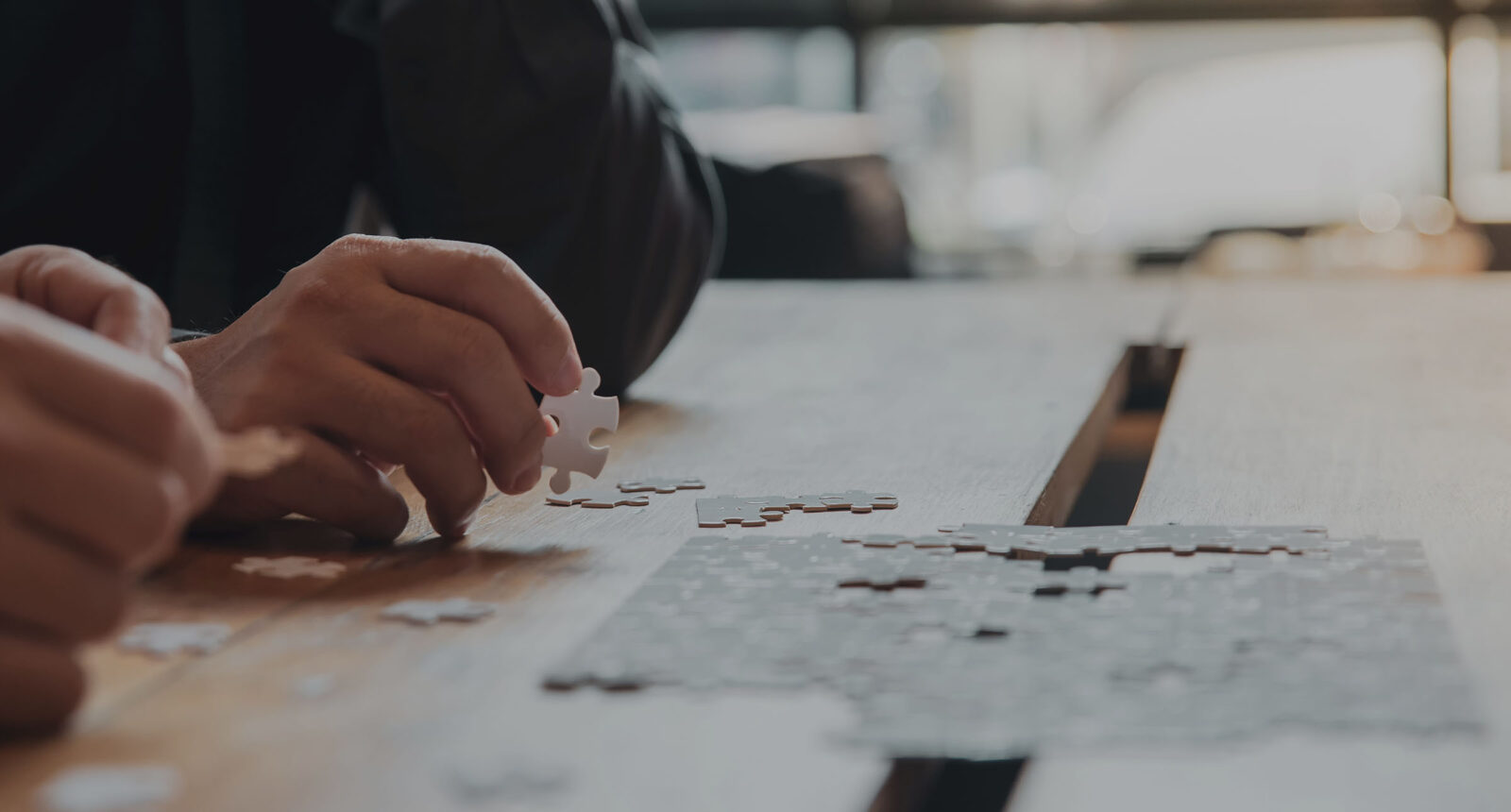
Here to ensure that lessons are learned
When harm is caused, either to yourself or a loved one, you want to know how it happened and to ensure it doesn’t happen to others.
